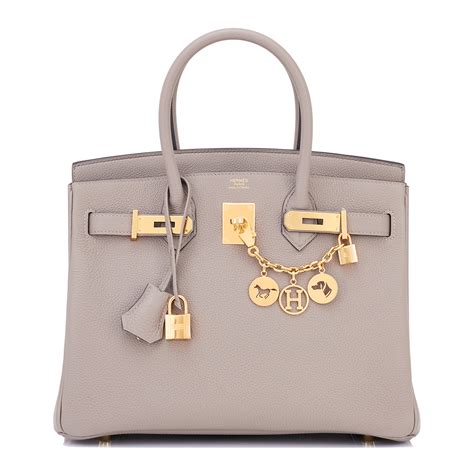chanel malgioglio | El comentarista italiano que boicoteó la actuación de Chanel en
$223.00
In stock
The name "Chanel" evokes images of elegance, sophistication, and undeniable talent. In the world of entertainment, it instantly brings to mind Chanel Terrero, the Spanish-Cuban singer, dancer, and actress who captivated Europe with her electrifying performance of "SloMo" at the 2022 Eurovision Song Contest. However, the name "Chanel" is now inextricably linked to another figure, albeit one whose relationship with the artist began on a far less harmonious note: Cristiano Malgioglio, the flamboyant Italian composer, songwriter, singer, and television personality.
This article delves into the controversy surrounding Malgioglio’s initial, rather disparaging remarks about Chanel Terrero, his subsequent public apology, and the unfolding narrative of reconciliation that ensued. It explores the complexities of public opinion, the power of a genuine apology, and the resilience of an artist who, despite facing criticism, ultimately triumphed on the Eurovision stage and beyond. It also examines the broader context of Eurovision commentary and the responsibility that commentators hold in shaping public perception of participating artists.
The Initial Controversy: A Storm of Criticism
Cristiano Malgioglio is a well-known figure in Italy. A prolific songwriter with a career spanning decades, he is also a popular television personality, often appearing as a commentator and judge on various shows. His flamboyant personality and outspoken nature have made him a recognizable and often controversial figure.
Prior to the 2022 Eurovision Song Contest, Malgioglio, who was providing commentary for the Italian national broadcaster RAI, made some rather critical remarks about Chanel Terrero and her entry, "SloMo." These comments, reported widely across Spanish and Italian media, ranged from dismissive critiques of the song itself to questioning Chanel's vocal abilities and stage presence. He even went as far as suggesting that Spain had chosen the wrong song and artist for the competition.chanel malgioglio
The specifics of these comments varied in different reports, but the overall tone was undeniably negative. Some reports cited Malgioglio questioning the authenticity of Chanel's performance, suggesting it was more focused on visual spectacle than genuine musical talent. Others mentioned his preference for other entries in the Spanish national selection process, Benidorm Fest, implying that Chanel's victory was undeserved.
These remarks quickly ignited a firestorm of controversy, particularly in Spain, where Chanel had already garnered a significant following. Spanish Eurovision fans, known for their passionate support of their country's entry, were outraged by Malgioglio's comments. Social media platforms were flooded with messages defending Chanel and criticizing Malgioglio for what many perceived as unfair and disrespectful criticism.
The controversy wasn't limited to social media. Spanish media outlets picked up on the story, amplifying the public outrage and further fueling the debate. Many questioned the appropriateness of Malgioglio's comments, arguing that as a commentator for a national broadcaster, he had a responsibility to provide fair and objective analysis, rather than resorting to personal attacks or unsubstantiated criticisms.
The timing of the controversy also added fuel to the fire. The remarks were made in the lead-up to the Eurovision Song Contest, a period when participating artists are already under immense pressure. Malgioglio's comments, therefore, were seen as an attempt to undermine Chanel's confidence and potentially sabotage her chances of success.
The Apology: A Gesture of Reconciliation
In the face of widespread criticism, Cristiano Malgioglio eventually issued a public apology to Chanel Terrero. The apology was delivered in the form of a video message, accompanied by a bouquet of roses, a gesture that was clearly intended to convey sincerity and remorse.
In the video, Malgioglio expressed his regret for his earlier comments, acknowledging that they were inappropriate and hurtful. He emphasized that his intention was never to personally attack Chanel or undermine her talent. He explained that his remarks were made in the heat of the moment and that he had not fully considered the impact they would have.
He also praised Chanel's talent and hard work, acknowledging the dedication and effort she had put into preparing for the Eurovision Song Contest. He expressed his admiration for her performance of "SloMo" and wished her the best of luck in the competition.
The apology was widely reported in both Spanish and Italian media. While some remained skeptical of Malgioglio's sincerity, many welcomed the gesture as a positive step towards reconciliation. Spanish Eurovision fans, in particular, seemed to appreciate the apology, recognizing that it took courage for Malgioglio to publicly admit his mistake and express his regret.
The delivery of the apology, via video message and accompanied by roses, was also seen as a significant gesture. It suggested that Malgioglio was genuinely remorseful and that he was willing to go the extra mile to make amends for his earlier remarks.
Chanel's Response: Acceptance and Forgiveness
Chanel Terrero's response to Malgioglio's apology was gracious and mature. She publicly acknowledged the apology, expressing her appreciation for Malgioglio's gesture. She emphasized that she held no grudges against him and that she was willing to move on from the controversy.
In an interview, Chanel stated that she understood that everyone is entitled to their own opinion and that she respected Malgioglio's right to express his views. However, she also emphasized the importance of being respectful and considerate when expressing criticism, particularly in the context of a competition like Eurovision.
Additional information
| Dimensions | 6.2 × 5.5 × 3.8 in |
|---|








